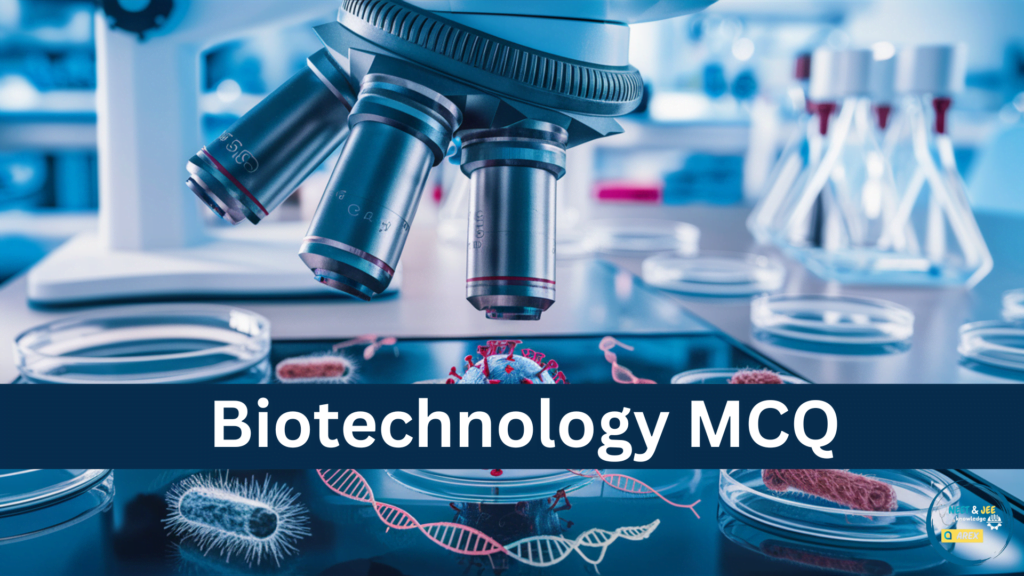
Biotechnology Biology MCQ for NEET
Biotechnology is a branch of science that involves using living organisms or their parts to develop or create products and processes for specific purposes. It combines biology with technology to enhance various fields such as medicine, agriculture and environmental management. One key aspect of biotechnology is genetic engineering, where scientists modify the DNA of organisms to introduce new traits or eliminate undesirable ones. This has led to advancements like genetically modified crops, which are more resistant to pests and diseases and the development of insulin for diabetes treatment.
Another significant area of biotechnology is bioprocessing, which uses microorganisms to produce valuable products like antibiotics, enzymes and vaccines. Fermentation is a common bioprocessing method used in industries to produce large quantities of these substances. Biotechnology also plays an important role in environmental protection through bioremediation, which uses microorganisms to clean up pollutants and restore contaminated environments. Overall, biotechnology holds great promise in improving human health, enhancing food production and protecting the environment.
| NEET 2025 Exam Important Links | |
|---|---|
| NEET 2025 Updated Syllabus | NEET Eligibility Criteria 2025 |
| Biology Preparation | Chemistry NEET Preparation |
| NEET Preparation tips for 2025 | NEET Result 2024 |
Biotechnology NEET MCQ
Enhance your preparation with Arexiq’s Mock Test Series where we provide solutions to various MCQs like we provide in this post “Biotechnology NEET MCQ”. Our expert teachers explain the concepts thoroughly, making it easy for you to understand. We offer many types of questions ensuring a clear grasp of concepts.
FAQs about Biotechnology
1. What is biotechnology?
Answer. Biotechnology is the use of living organisms or their parts to develop or create products and processes for specific purposes.
2. What are some applications of biotechnology?
Answer. Applications include genetic engineering, bioprocessing for producing antibiotics and vaccines and bioremediation for environmental cleanup.
3. What is genetic engineering?
Answer. Genetic engineering is a technique where scientists modify the DNA of organisms to introduce new traits or remove undesirable ones.
4. How does biotechnology benefit agriculture?
Answer. Biotechnology benefits agriculture by creating genetically modified crops that are more resistant to pests, diseases and environmental conditions.
5. What is bioremediation?
Answer. Bioremediation is the use of microorganisms to clean up pollutants and restore contaminated environments.
6. How is biotechnology used in medicine?
Answer. In medicine, biotechnology is used to develop treatments like insulin for diabetes, vaccines and antibiotics.
7. What is bioprocessing?
Answer. Bioprocessing is the use of microorganisms to produce valuable products such as antibiotics, enzymes and vaccines through methods like fermentation.
8. Why is biotechnology important?
Answer. Biotechnology is important because it helps improve human health, enhances food production and protects the environment through innovative solutions.


